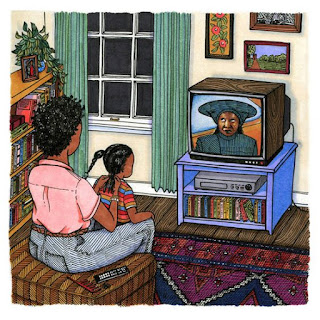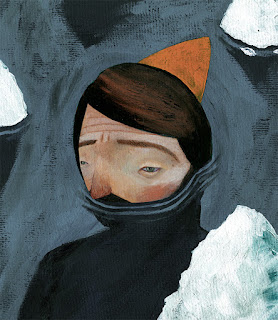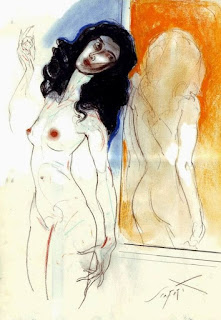Good Hair by Safiya Sinclair *Traducción al Español*
Cabello Lindo*
Sólo Dios, querida,
Podría amarte,
y No a tu cabello amarillo.
—W. B. Yeats, “Para Anne Gregory”
Hermana, no nos quedó nada.
Aquí abajo, en esta hora de abandono escuchamos
pero no oímos voces en las conchas. Ni belleza.
Nuestras vidas se enredaban ya en la violencia de nuestro cabello,
aprendimos a sentirnos no deseados en la mirada azul del mar,
sabiendo incluso que el rubio liquen era considerado bello.
Nosotros no, los que nos peinamos y amansamos al amanecer,
maldiciendo a cada animal bruto y su airosa melena-
Dios no permita que todo ese buen cabello se desperdicie.
Peluquero, puedo decir una verdad o puedo no decir nada;
encuéntrate en las trenzas africanas y en mi inglés torcido,
monedas con caras extrañas estampadas en lo profundo de mi palma,
pido ser remodelada con cabello marginado, o jalada
del cuero cabelludo con tu plancha caliente. El espejo quita
y el espejo quita. He atravesado esto y esperé con vanidad;
Pagué el precio por ver mis raíces rebeldes en espuma blanca,
el fármaco formaldehído quemando mi piel.
Por un cabello lindo haría cualquier cosa. Pago el precio de la dignidad,
mandaría vírgenes de India a la cosecha diaria, las millas
de su cabello sedoso vendido por miles en la calle.
Aún así acudimos a ellos anualmente con nuestras monedas cobrizas,
noches enteras de rodillas, nuestras oraciones susurradas
de oreja a oreja, esperando despertar con suaves rizos que se desplieguen,
olas negras partiendo hebras de miel,
¿Pero cómo podríamos saber nuestra pobreza?
Que de los buenos genes de nuestra madre sólo saldría mala hierba,
que yo desperdiciaría toda su mulata suerte.
Este cabello negro, mi más grande enfermedad.
Tan grueso que mantiene un lápiz suspendido.
Translation to Spanish by Marjha Paulino
Good Hair
Only God, my dear,
Could love you for yourself alone
And not your yellow hair.
—W. B. Yeats, “For Anne Gregory”
Sister, there was nothing left for us.
Down here, this cast-off hour, we listened
but heard no voices in the shells. No beauty.
Our lives already tangled in the violence of our hair,
we learned to feel unwanted in the sea’s blue gaze,
knowing even the blond lichen was considered lovely.
Not us, who combed and tamed ourselves at dawn,
cursing every brute animal in its windy mane—
God forbid all that good hair being grown to waste.
Barber, I can say a true thing or I can say nothing;
meet you in the canerows with my crooked English,
coins with strange faces stamped deep inside my palm,
ask to be remodeled with castaway hair, or dragged
by my scalp through your hot comb. The mirror takes
and the mirror takes. I’ve waded there and waited in vanity;
paid the toll to watch my wayward roots foam white,
drugstore formaldehyde burning through my skin.
For good hair I’d do anything. Pay the price of dignity,
send virgins in India to daily harvest; their miles
of glittering hair sold for thousands in the street.
Still we come to them yearly with our copper coins,
whole nights spent on our knees, our prayers whispered
ear to ear, hoping to wake with soft unfurling curls,
black waves parting strands of honey.
But how were we to know our poverty?
That our mother’s good genes would only come to weeds,
that I would squander all her mulatta luck.
This nigger-hair my biggest malady.
So thick it holds a pencil up.
Image: Sally Nixon
Safiya Sinclair is a poet and librettist born and raised in Montego Bay, Jamaica. She is the author of Cannibal (University of Nebraska Press, 2016), winner of the 2015 Prairie Schooner Book Prize in Poetry. She earned an MFA in poetry from the University of Virginia and is the recipient of a 2015 Ruth Lilly and Dorothy Sargent Rosenberg Poetry Fellowship.



Comentarios
Publicar un comentario